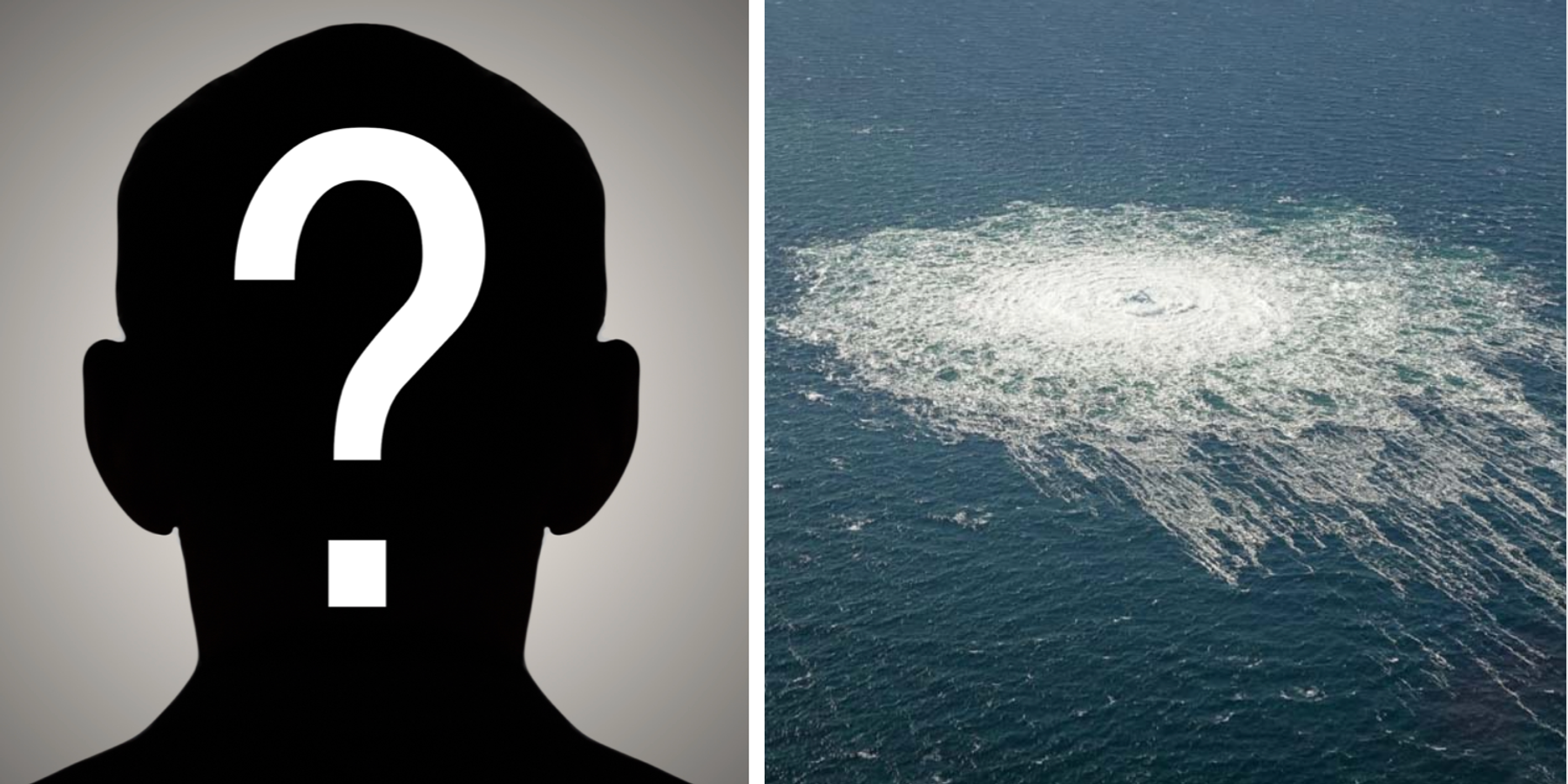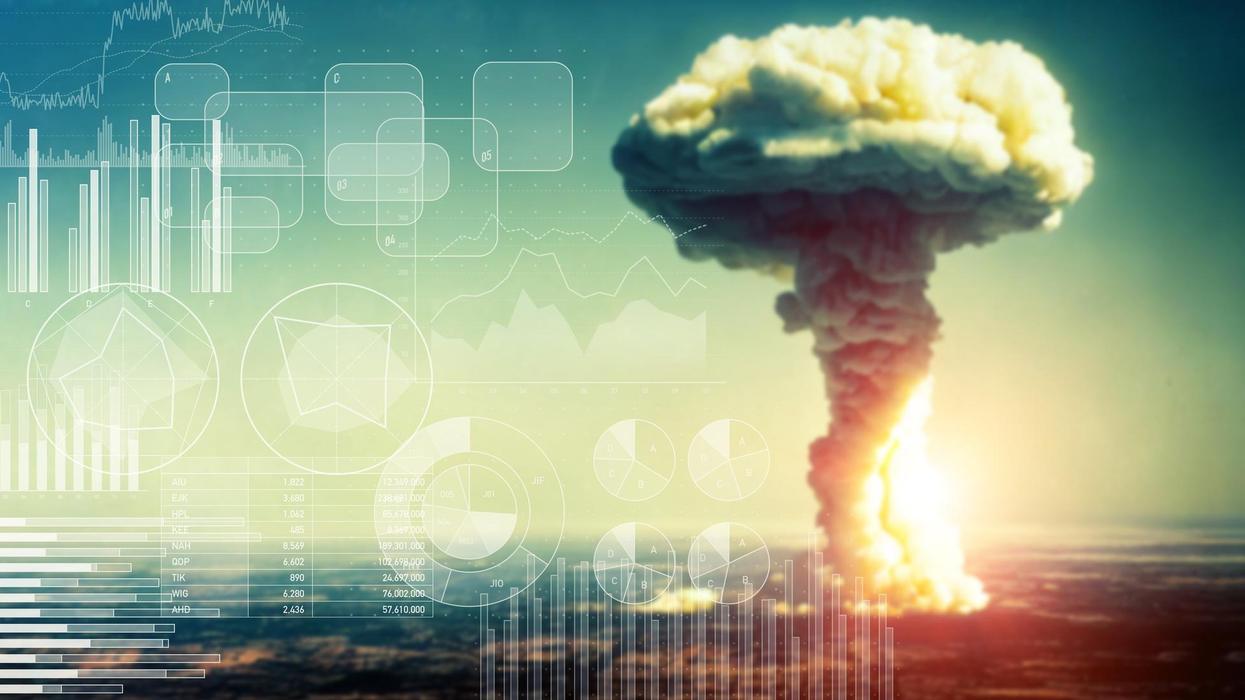Swedish officials investigating the Sept. 2022 explosion of the Nord Stream pipelines say they are closing down their probe and handing it off to their German counterparts, offering no new insight into "who done it."
Swedish public prosecutor Mats Ljungqvist said in a statement Wednesday that "the investigation has been systematic and thorough,” but, "against the background of the situation we now have, we can state that Swedish jurisdiction does not apply.”
Ljungqvist added that “the German investigation continues and due to the secrecy that prevails in international legal cooperation, I cannot comment further on the cooperation that has taken place.”
“I will also not be able to comment anything further on the conclusions of the Swedish investigation or comment on any suspected persons in the Swedish investigation,” Ljungqvist said.
Denmark and Germany have official probes into the sabotage, too. According to MarketWatch, reporting the story this morning, Denmark officials did not have official comment, and German officials their probe “is still not finally finished, but we expect to be able to make an announcement within a short time.”
This certainly comes as a disappointment for those waiting for some resolution to the mystery, which began on Sept. 26, 2022, when reports came in of damage and leaks to the Nord Stream 1 and Nord Stream 2 natural gas pipelines that travel from Russia to Germany under the Baltic Sea. Investigators have since narrowed down that it was an act of sabotage, and likely a state actor, though probably not Russia, which initially was blamed for the act by numerous public figures in the press.
All signs since the year anniversary of the blasts have been pointing — in bright neon — to Ukraine as the culprit. Not everyone agrees of course. Back in February 2023, veteran journalist Sy Hersh caused a media earthquake himself by reporting that it was a unit of secret U.S. Navy divers, with the blessing of the Biden Administration, that blew up the pipelines. Though he never followed up his original reporting with new or corroborating information, he maintains his version of events is the most truthful.
“I won’t dwell on the failure of the mainstream media to follow up on that story — some reporters, as I learned decades ago, have inside sources and others do not,” he wrote on Feb. 6, the anniversary of his bombshell report. It had been roundly dismissed by the mainstream media hive, which has indeed been following every lead but that one ever since.
That is not to say that the Ukrainian trail was not compelling, though it did take the heat further and further away from Washington. Thanks to the infamous Discord leaks in the spring of 2023, we learned that the CIA had been warning European allies that “Ukrainian military had planned a covert attack on the undersea network, using a small team of divers who reported directly to the commander in chief of the Ukrainian armed forces,” at least three months before the actual explosions.”
It’s not been clear that Ukraine ever went through with it. Further reporting in 2023 suggested a small boat called the “Andromeda” had been rented and served as the vessel to carry a unit of rogue pro-Ukrainian saboteurs. Then an exhaustive investigation by 19 Der Spiegel writers reported that all roads were indeed leading to the Ukrainian government, saying that German investigators had few remaining doubts that a Ukrainian commando was responsible for blowing up the pipelines.
Most recently, in a bizarre twist, the Washington Post reported that a Ukrainian military officer “connected to the highest levels of Ukrainian intelligence,” who also happens to be in jail on other charges, supposedly played a key role in the Nord Stream pipeline sabotage last year. Roman Chervinsky, through his lawyer, has denied this story and calls it "Russian propaganda." That was back in November.
When the pipelines were destroyed in September 2022, the mainstream commentariat rushed to blame Russia, even though the pipelines were majority Russian owned (51%) and would only hurt Russia’s future chances to export natural gas (Nord Stream 1 was exporting limited supplies to Europe before the explosions but at its high point was exporting 35% percent of the EU’s natural gas; Nord Stream 2 had never gone online). After the sabotage, the thrust of gas exports for Europe are now led by the U.S., UAE and the Netherlands.
“The United States without a question (has benefited),” my colleague at QI, Anatol Lieven told RS at the one-year anniversary of the explosions. “It made it much more difficult for Germany to ever move back into an intensive energy relationship with Russia and made German and other European countries even more permanently dependent on imports of liquified natural gas from the United States.”
Why would Ukraine benefit? “The aim, they say, was to deprive Moscow of an important source of revenue for financing the war against Ukraine. And at the same time to deprive Putin once and for all of his most important instrument of blackmail against the German government,” according to the Der Spiegel report in August.
Nevertheless, it has been a long time since the explosions led European Parliament member Radoslaw Sikorski, husband of pro-Ukrainian partisan and American writer Anne Applebaum, to declare “Thank you, USA” on Twitter, right after the news broke in September 2022. Sounds like it will be even more time until we get definitive answers — if ever.















